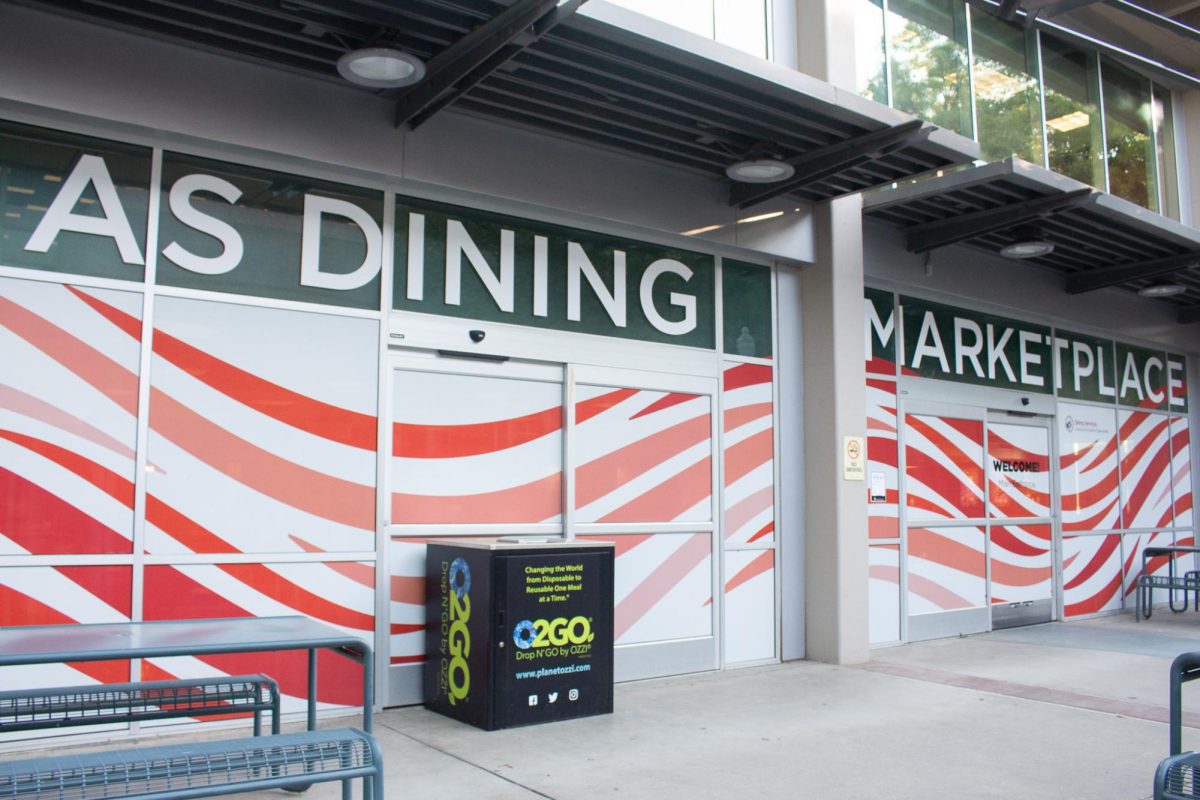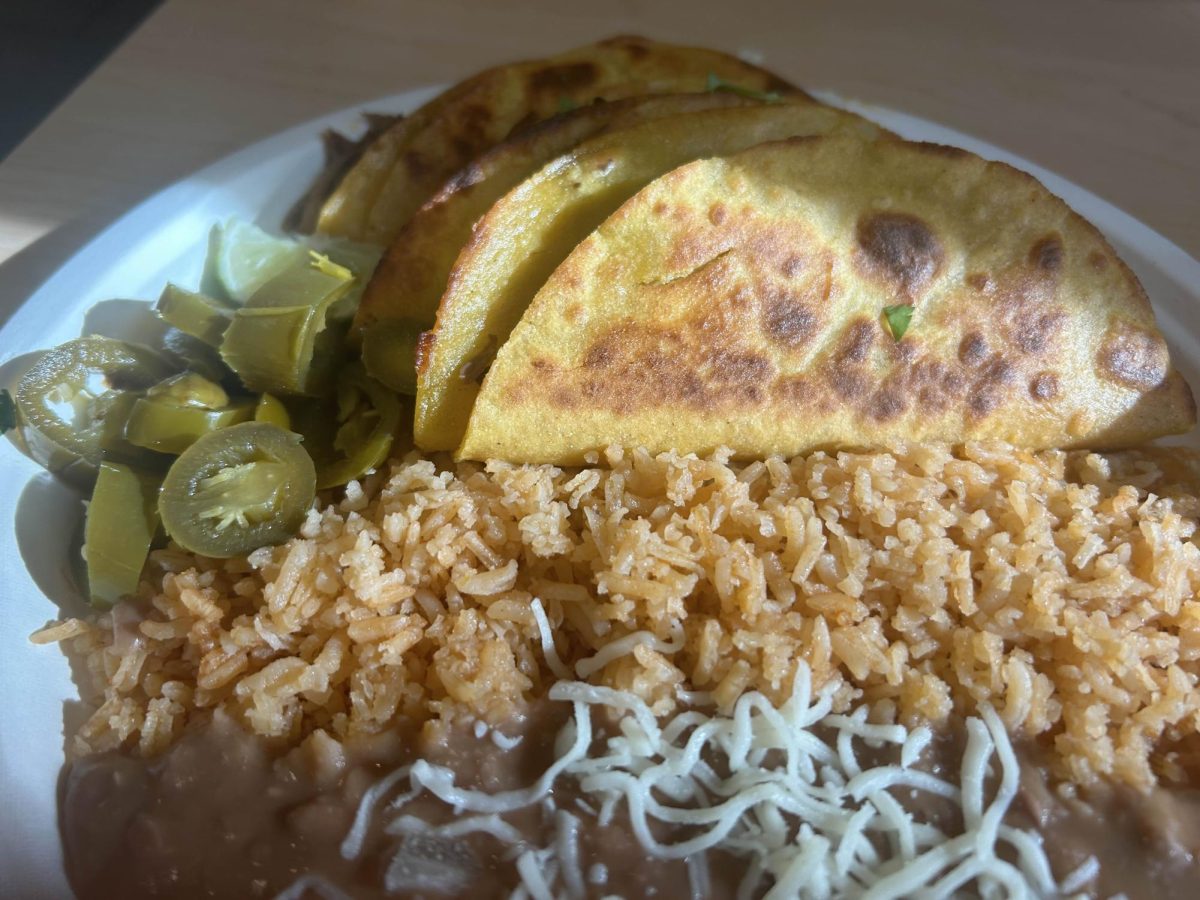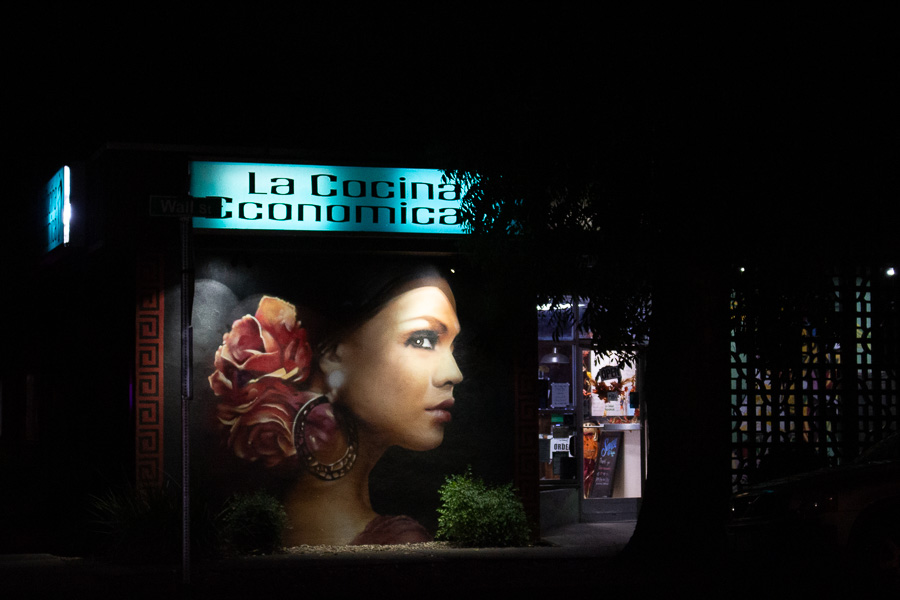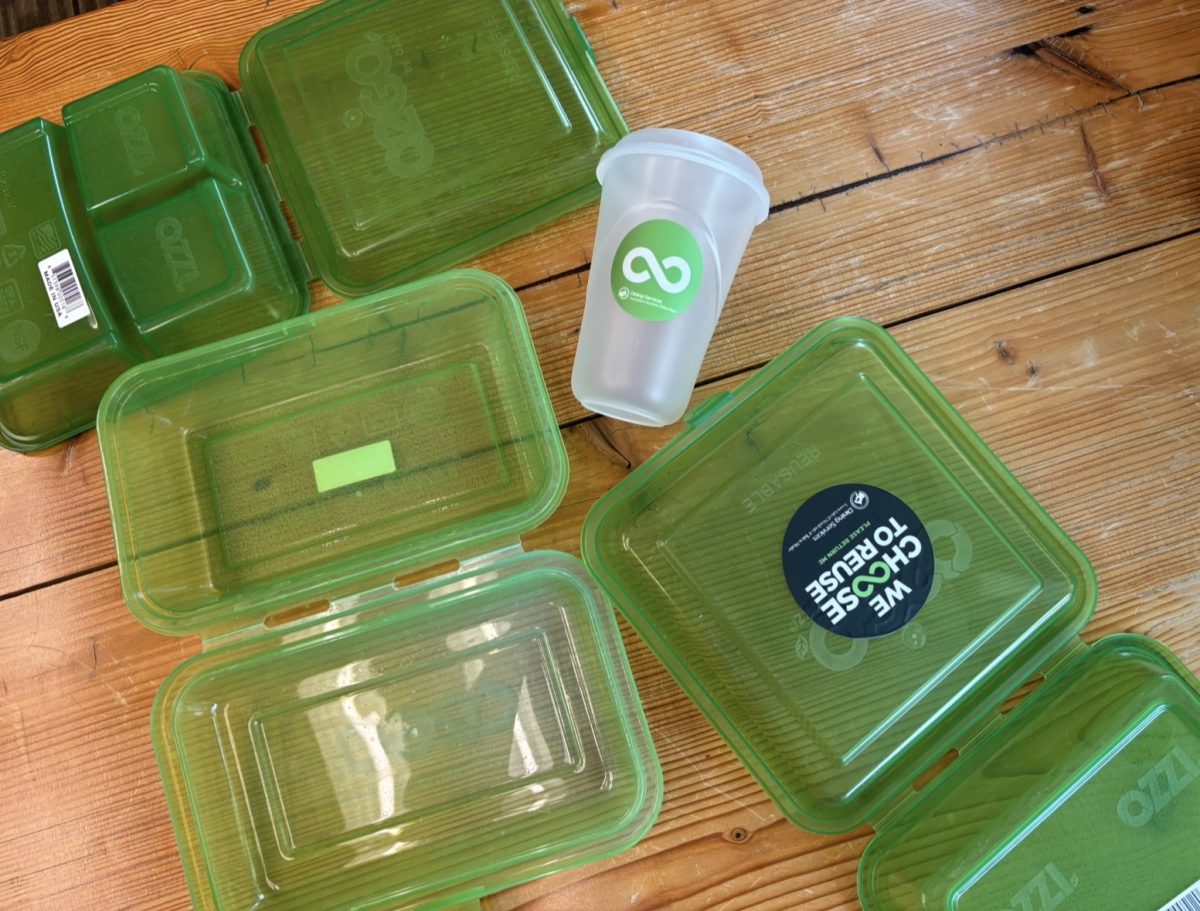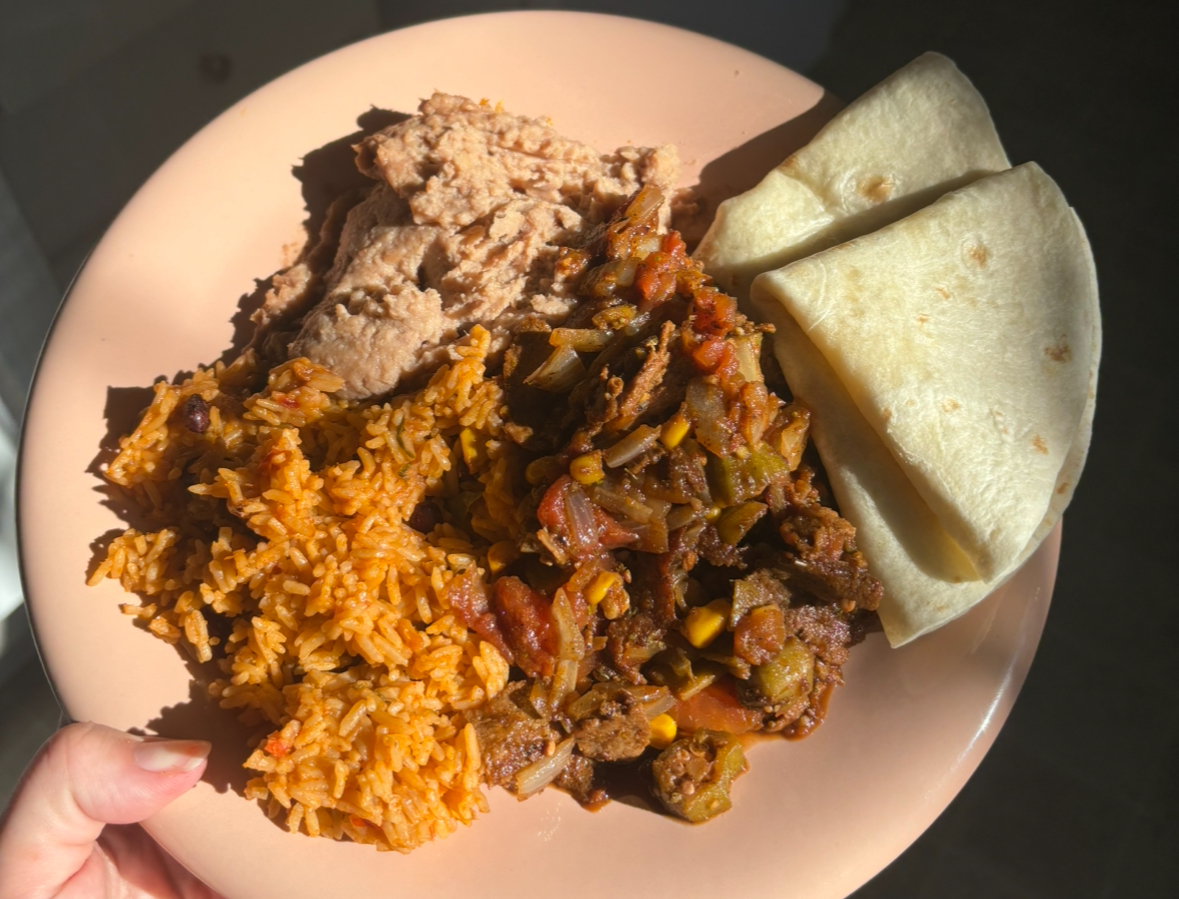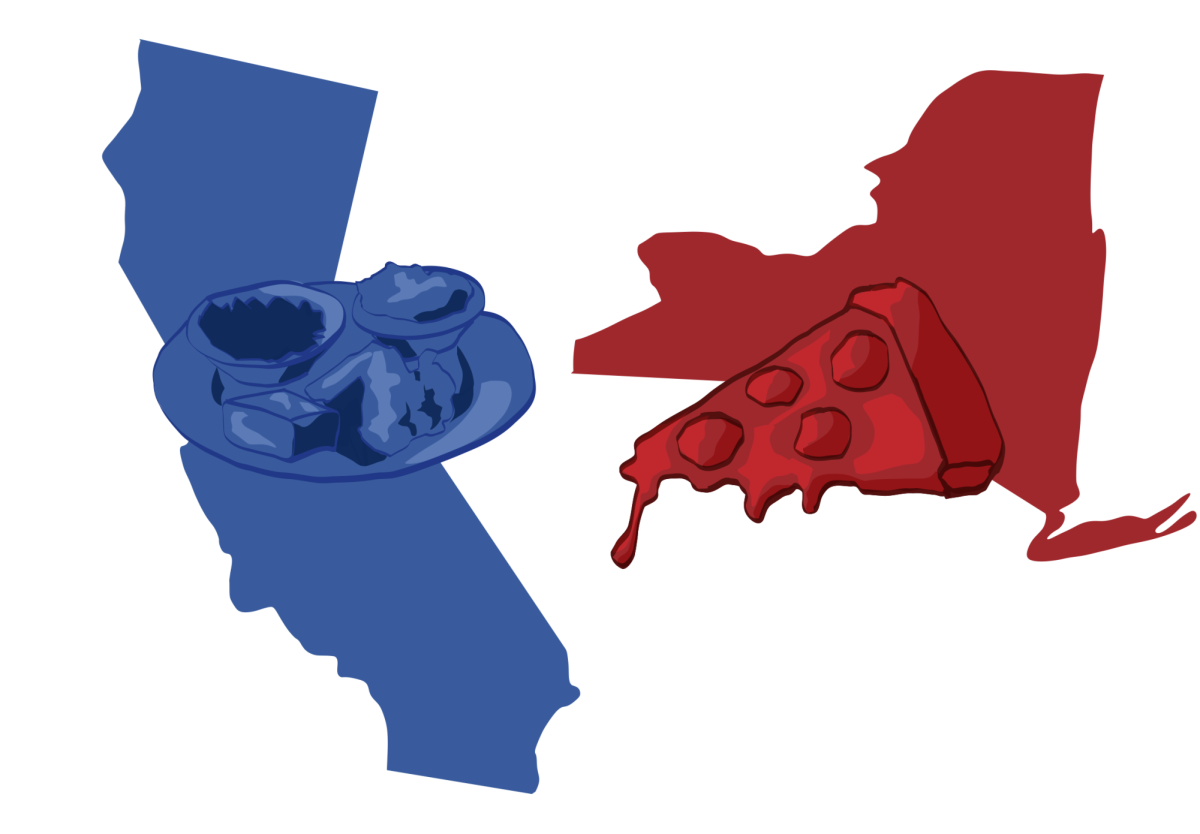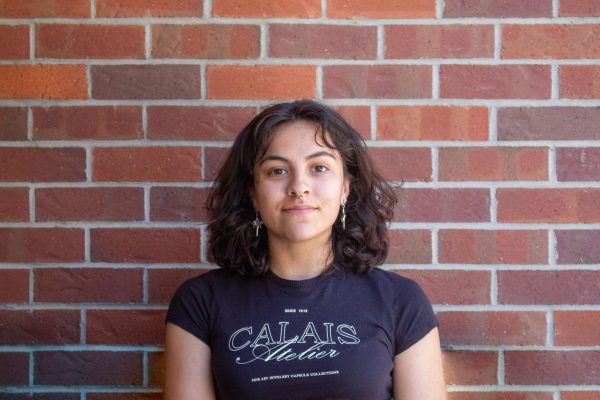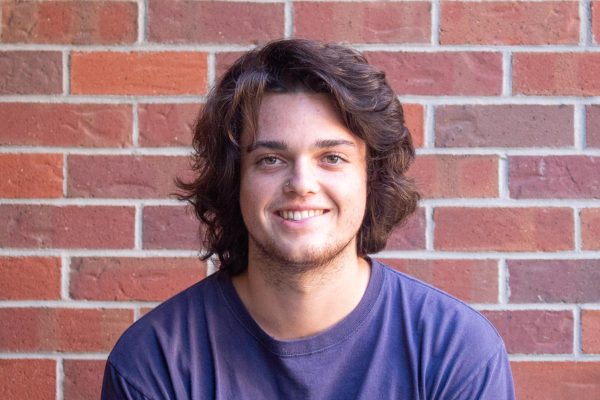The Marketplace Cafe in the Bell Memorial Union has a new look and new flavors, but this is only the beginning of the changes the Associated Student Dining Services hope to make regarding on-campus food options.
The Marketplace Cafe has historically been a point of struggle for the AS Dining Services. Thomas Rider — Dining Services Director — explained that Dining Services is excluded from obtaining student fees, meaning all revenue must be generated through transactions while being obligated to pay the expenses associated with operating on State property.
Between rent, higher hourly wages and paying off the remodel costs along with IT, HR, financial services departments – which most restaurants don’t have to pay – Rider says the goal is to break even, but the challenge is really to just lose less.
“The Marketplace is a money loser for the AS,” Rider said.
Although Rider has his Master’s degree in Interdisciplinary Studies from Chico State, he has worked in kitchens for a large portion of his life.
In 2015, Rider started working at Chico State as a cook and within two months, worked his way up to executive chef. Three years later, he became interim director.
Rider’s time as intermittent director was eventful to say the least. He was in this position during both the Camp Fire in 2018 and the COVID-19 pandemic.
During both of these crises, the Chico community was left to fend for themselves as delivery trucks refused to deliver to Chico.
“We were basically on an island,” he said, “They [delivery trucks] were like, nope, good luck.”
As food service providers, no matter what circumstance, Rider and his team are expected to provide food. Without the outside assistance, Rider looked to develop his relationships with local food providers.
This idea of local resilience — especially in the face of a crisis -– became an obvious asset for Rider moving forward. Building relationships with local farmers and vendors is crucial during both daily operations and emergency situations.
Enter Chartwells Higher Ed. Chartwells is owned by Compass Group USA and provides food for almost 300 college campuses.
Currently Chartwells provides food for eight California State University campuses such as:
- Cal Poly Humboldt
- CSU Fullerton
- CSU Channel Islands
- CSU Monterey Bay
- San Jose State University
- Cal State East Bay
- Cal Poly
- Cal State LA
“We want to do something different, we want to do something new – we want to be Chico,” Rider said, “We don’t want to be Long Beach or like Cal Poly Pomona. We don’t need Burger King on campus – we got one right across the street.”
Dining Services at Chico State were “moments away from being bought out by a major gigantic mega corporation,” Rider said.
It was left up to the Associated Students Board of Directors to vote whether or not to follow the trend of getting into a contract with Chartwells.
To persuade the board, Rider put together a presentation of why Chartwells was not a solution for Chico State.
In his presentation, Rider contrasted how Chartwells food — bags of pre-seasoned, preservative heavy, smothered in salt, processed “Frankenfood” — to the wholesome dining experience filled with nutritious food for “developing minds” like Rider envisioned.
At the end of last semester, the AS Board of Directors voted against Chartwell take over, leaving Rider to quickly come up with a plan for the space with very little time. Rider wanted to show the campus as a whole that the Marketplace could be something exciting.
“So, this was a quick fix for us,” he said, “It was inexpensive to do — a little bit of paint, very minor, equipment modifications.”
When Rider was looking for vendors to fill the space, he kept in mind that this was a temporary fix, and didn’t want to endanger local businesses if the Marketplace didn’t pan out – which was a possibility.
Rider reached out to restaurants with pre-existing locations like Mi Taquito– a food truck that frequents campus – and Monkey Bowls, a local family opened smoothie bowl business.
If The Marketplace didn’t do as well as expected, Rider made it clear that it was important to reach out to restaurants that had something to fall back on.
“The thought was like, well, if it’s not good, you could go back to your truck, you could go back to Durham and like, we haven’t killed your business,” Rider said.
Colton Bertagna started Monkey Bowls in his parents winery and distillery, as that location grew he opened another one at the Chico State Marketplace – bringing acai bowls to Chico State. Bertagna has been thankful for the exposure he has been able to get by being on campus.
His only problem is trying to keep up — a problem that he’s proud to have. Bringing in local almonds, nuts, honey and making their granola in house, Bertagna offers a locally sourced option that is unique to the acai bowl world.
The last restaurant is Chico State Smokehouse Deli which is a partnership between AS Dining Services and University Farms.
The Meats Labs at University Farms is a meat processing facility within the College of Agriculture and University Farms. Haydn Clement, manager of the Meats Labs, explained in an email that the Meats Lab operates under federal inspection and serves as an educational facility where students get hands-on experience by taking farm animals from other units at the University Farm and that is then harvested, processed and sold by students.
This is Clement’s seventh year as manager of Meat Lab but has previously worked in the labs as a student.
The Smokehouse’s pastrami and smoked brisket comes from the Meats Lab. The brisket is cut, seasoned with their “signature blend or spices then smoked for over 12 hours with hickory and maple hardwood.” After, the roasts are frozen.
Clement explained that while the pastrami is “made from different cuts of beef,” it is sourced from the “bottom round of beef” which is “lean and full of flavor.”
They are cured – which can take up to seven days for larger roasts – and then brined with a “solution of salt and sugar.” After, roasts are seasoned with “black pepper, coriander, and a few other super-secret spices and then head to our smokehouse” and then smoked for nine hours.
North Valley Food Hub handles the delivery of the product to campus. North Valley Food Hub is owned by Chico State professor Jacob Brimlow and faculty member of the Department of Political Science and Criminal Justice, Noelle Ferdon Brimlow.
North Valley Food Hub would collect information on the different food providers then people like Rider could look and easily order from multiple vendors and have it delivered in one truck.
North Valley Food Hub briefly disappeared due to the driver earning his “teaching credential at Chico State” and COVID-19 Rider said.
“Fantastic for him,” He said, “Not so good for the North Valley Food Hub and Dining Services.”
However, they are back in business this semester and Rider can continue to get food from multiple farms in one truck, which decreases their carbon footprint, Rider noted.
“Institutional food services of our size typically don’t operate like this,” Rider said, “I’m trying to run this more like a series of restaurants rather than a cafeteria”
This November, a consultant will be coming to the Chico State campus to assess what food services students and stakeholders need on campus. The consultant will provide a proposed five year plan for the future of AS Dining Services.
Rider feels that current Marketplace is “putting a band-aid on the problem” whilst showing the campus community how successful a model of emphasizing local vendors and local restaurants can be — but the consultant is needed to “analyze the campus to see where we’re going to go.”
Moving forward, Rider has big ideas for what can be accomplished like a food truck hub or ice cream produced and sold on campus. He wants AS Dining Services to be the anti-version of the industrial food system with ingredient focused, “chef-menu” services.
Nadia Hill and Chris Hutton can be reached at [email protected].





